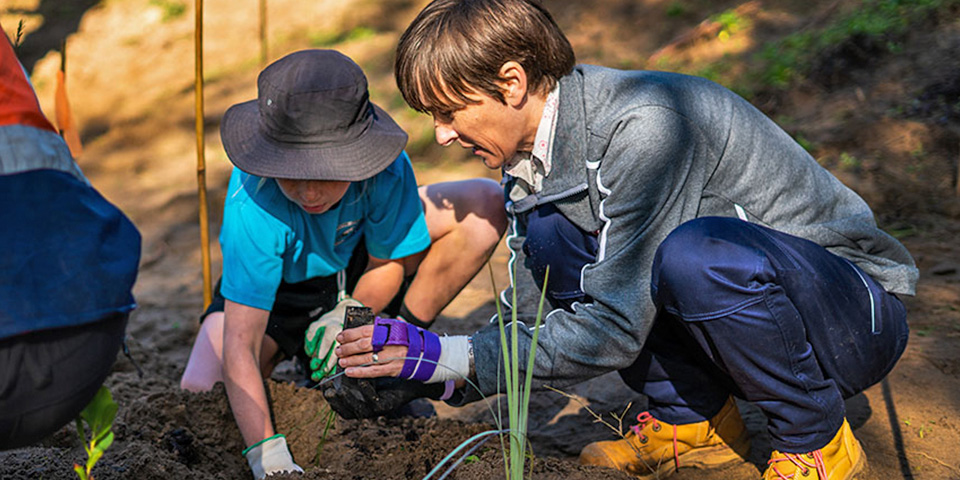Our Sustainability Sub-Strategy
The Moorditj Boodja - Strong Country Sustainability Sub-Strategy 2024-2030 outlines Murdoch University's vision to lead by example, empowering local and global communities to help foster a future where both people and the planet can thrive.
Together with the accompanying Implementation Plan 2024-2027, this comprehensive sub-strategy will operationalise our commitment to sustainability outlined in the University's Ngala Kwop Biddi Strategy 2023-2030. Together we are striving toward Moorditj Boodja – Strong Country.
Our mission, vision and guiding principles
Our Sustainability Sub-Strategy is designed to form a coherent and focused framework for achieving the university’s strategic sustainability goals. Each action is underpinned by our mission, vision and guiding principles.
Our Sustainability vision - We lead by example, empowering local and global communities to embrace a future where our impacts on the environment are minimised and people and planet can thrive.
Our Sustainability mission - We are dedicated to nurturing a culture of sustainability that infuses every facet of our university community. By melding cutting-edge research, innovative education, and holistic engagement, we empower individuals and communities to enact meaningful change.
Nature Positive
We are committed to halting ecological decline and improving the condition, abundance, diversity and resilience of species, populations and habitats.
Sustainability Ethos
We are committed to sustainability, ethical behaviour, and responsible environmental stewardship. This ethos guides all activities of the University.
First Nations Knowledges
We care for the Country in ways that value and protect Indigenous Cultural and Intellectual Property, and aid cultural survival and revival.
Collaboration and Inclusivity
Through stakeholder engagement we will foster inclusive decision-making and ensure a tapestry of voices shapes our sustainable journey.
Living Laboratory
Our campuses serve as vibrant hubs for research, teaching, and learning, where the physical environment turns theory into tangible action..
Transparency and Accessibility
We will be transparent on the actions this strategy, acknowledging that transparent practices foster a culture of sustainable innovation.
Our Decarbonisation Roadmap 2025-2030
The Decarbonisation Roadmap outlines a realistic and implementable strategy that aligns with the university's sustainability goals, ensuring a clear and actionable pathway to campus decarbonisation.
Murdoch University is committed to achieving:
- Net Zero Operational (Scope 1 and 2) Emissions by 2030
- Carbon Positivity (Scope 1 and 2) by 2035
- Net Zero Scope 3 Emissions by 2050
This Roadmap introduces a series of projects that collectively form the Decarbonisation Program of Works, which provides a strategic framework for organising, prioritising, and executing multiple projects that will contribute to the university's decarbonisation objectives.
While this roadmap focuses on Scope 1 and 2 emissions, the University is also committed to addressing the broader impact of supply chain and indirect emissions (Scope 3) and is working towards achieving Net Zero Scope 3 emissions by 2050. Lookout for our forthcoming Circularity and Transport roadmaps as well as annual progress updates.




